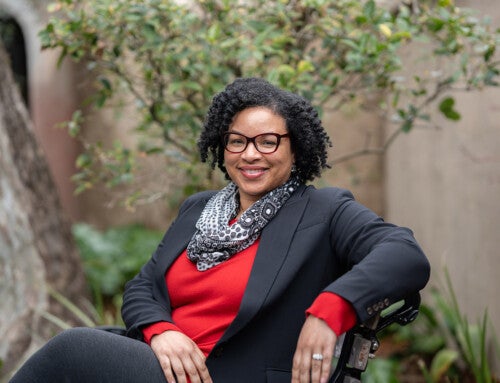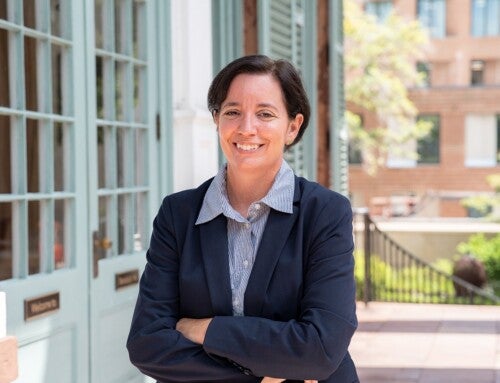 You don’t have to spend much time in a college bookstore to realize that textbooks have become increasingly expensive. Given those rising costs, it’s encouraging to know that the College has begun to embrace open educational resources (OER). This relatively new concept uses 21st-century technology to create a vast pool of openly shared educational resources. Think free, course-related content available online instead of costly tomes in print.
You don’t have to spend much time in a college bookstore to realize that textbooks have become increasingly expensive. Given those rising costs, it’s encouraging to know that the College has begun to embrace open educational resources (OER). This relatively new concept uses 21st-century technology to create a vast pool of openly shared educational resources. Think free, course-related content available online instead of costly tomes in print.
RELATED: OER Incentive Grant Application Deadline
Universities around the globe are buying into OER, and the College is no exception. Under the leadership of professionals from Addlestone Library, the institution began formally supporting this concept last year. During the fall semester of 2019, seven faculty members were awarded grant funding to implement this approach for some of their courses. With funds provided through the Open Education Resources Incentive Program, these professors made life easier for 146 students, saving them a collective $16,500 in textbook purchases. In addition, there are 17 faculty members preparing to use OER in their courses next fall.
Senior instructor in the Department of Biology Deb Bidwell is one of those faculty members. She says that the motivation for embracing OER is simple: “It’s hard to argue against the affordability that this approach offers students, but I also favor open educational resources because the concept emphasizes equity and access for all manner of students, regardless of their socioeconomic status.”
Ian O’Byrne, an assistant professor in the Department of Teacher Education, is also among the CofC faculty in this growing camp.
“I value open education resources for a number of reasons, the first of which is an issue of equity. This approach provides opportunities for access to content on the part of all students,” he says. “The second is that is helps me improve my teaching. Instead of relying on one textbook or a particular set of curricula to guide learning objectives in my classes, I have the opportunity to dictate what I would like to focus on, and then identify or develop materials to help support those course goals and objectives.
“The final reason,” O’Byrne continues, “is that open educational resources help me make sure my scholarship is current and relevant. I regularly blog about my work on my website or document trends in my field in a weekly newsletter. Many times, I create class materials and share them openly from my websites and then include them in my coursework. By sharing this content openly online, I get feedback from my professional learning network, and that helps ensure that my content and materials are of the highest quality.”
Burton Callicott and Gretchen Scronce, resource librarians at CofC, lead a group that seeks to promote affordable learning and connect interested faculty members with resources they can use to transition to free or low-cost course materials. One way this group is doing that is by celebrating Open Education Week (March 2–6, 2020). Among other activities that week, Callicott and Scronce will offer a presentation for faculty about OER on Thursday, March 5, at 12:15 p.m. in Addlestone Library, room 227.
“Obviously, there’s a huge financial benefit for students when they don’t have to spend money on textbooks,” explains Callicott, head of research and instruction services for the College of Charleston Libraries. “But also, many faculty members who have made the switch to OER report that their teaching improves and their students do better. In my opinion, that’s a win-win.”
To find out more about OER, and to learn what’s planned for Open Education Week, visit https://libguides.library.cofc.edu/affordablelearning.




